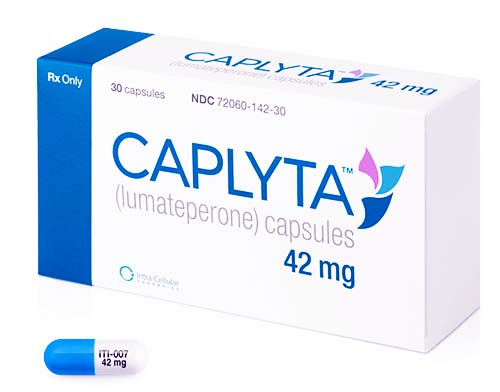Common Side Effects of Caplyta and How to Manage Them
If you or a loved one is considering or currently undergoing treatment with Caplyta, it’s important to understand the potential side effects that may arise. While this antipsychotic medication can be highly effective in managing symptoms of certain mental health conditions, it can also lead to a range of side effects that can impact the quality of life of individuals.
This section will provide a comprehensive overview of Caplyta side effects and discuss practical strategies for managing them. By gaining a deeper understanding of these side effects and implementing effective management techniques, individuals can potentially improve their treatment experience and achieve better overall outcomes.
Understanding Caplyta Side Effects
Caplyta is an antipsychotic medication that is commonly prescribed to individuals with schizophrenia. Like many medications, Caplyta can cause side effects that may affect individuals in different ways.
Some of the common side effects associated with Caplyta include drowsiness, weight gain, and dry mouth. Others may experience headaches, nausea, or dizziness.
It’s important for both patients and healthcare professionals to be aware of these common side effects and to monitor their impact on individuals. By understanding the frequency and potential impact of these side effects, adjustments can be made to treatment plans to better manage symptoms and improve overall well-being.
Other possible side effects of Caplyta may include changes in vision, muscle stiffness, or difficulty urinating. These less common side effects should be carefully monitored and reported to a healthcare professional if they occur.
Overall, understanding and monitoring Caplyta side effects is a crucial part of successful treatment. By working closely with healthcare professionals and staying aware of potential symptoms, individuals can better manage their treatment experience and improve their quality of life.

Managing Caplyta Side Effects
Although Caplyta can effectively treat symptoms of certain mental health conditions, it may sometimes cause side effects that can be difficult to manage. However, some various practical tips and strategies can help alleviate or minimize these effects and improve your overall treatment experience.
Medication Adjustments
Speak with your healthcare provider if you are experiencing adverse side effects while taking Caplyta. They can adjust the dosage or recommend alternative treatment options that suit your unique needs. Additionally, they may prescribe other medications to counteract specific side effects.
Lifestyle Changes
Some side effects of Caplyta can be managed or reduced through simple lifestyle changes. For example, regular exercise can help with weight gain, a common side effect. Similarly, following a healthy and balanced diet can improve digestive issues such as constipation or nausea. Prioritizing consistent sleep routines can also reduce the risk of drowsiness or fatigue.
Complementary Therapies
Complementary therapies such as acupuncture, yoga, or massage can support the management of Caplyta side effects, alongside conventional treatments. In some cases, these therapies can be more effective than medication alone. Speak with your healthcare provider to identify complementary therapy options that may work for you.
By implementing some of these management techniques, you may be able to improve your overall treatment experience and maintain a better quality of life.
Conclusion
In conclusion, while Caplyta can be an effective antipsychotic medication for individuals undergoing treatment, it is important to be aware of the potential side effects that may arise. By understanding these side effects and implementing practical management strategies, individuals can potentially improve their treatment experience and maintain a better quality of life.
It is crucial to maintain open communication with healthcare professionals and attend regular follow-up appointments to address any concerns or adjustments needed along the way. Remember, prioritizing your health and well-being is key to successful treatment outcomes.
Thank you for reading this article on Caplyta side effects. We hope this information has been valuable and informative for those currently undergoing treatment or considering Caplyta as a medication option.

FAQs
Q: What are the common side effects of Caplyta?
A: Common side effects of Caplyta may include nausea, vomiting, constipation, drowsiness, dizziness, and restlessness.
Q: How can I manage the side effects of Caplyta?
A: To manage the side effects of Caplyta, it is important to follow your healthcare professional’s instructions and take the medication as prescribed. Some strategies to manage side effects may include staying hydrated, eating fiber-rich foods to prevent constipation, avoiding alcohol and sedatives that can increase drowsiness, and discussing any concerns or adjustments needed with your doctor.
Q: Are there any lifestyle changes that can help alleviate Caplyta side effects?
A: Yes, adopting healthy lifestyle habits can potentially alleviate Caplyta side effects. Regular exercise, maintaining a balanced diet, getting enough sleep, and minimizing stress can all contribute to better overall well-being and potentially reduce the severity of side effects.
Q: Can Caplyta cause weight gain?
A: While weight gain is not commonly reported as a side effect of Caplyta, it is important to discuss any changes in weight with your healthcare professional. They can monitor your progress and guide you on maintaining a healthy weight.
Q: Are there any serious side effects associated with Caplyta?
A: Although uncommon, Caplyta may cause serious side effects such as changes in heart rhythm, allergic reactions, or an increased risk of suicidal thoughts or behaviors. It is crucial to seek immediate medical attention if you experience any severe or unusual symptoms while taking Caplyta.
Q: Can I take other medications while on Caplyta?
A: It is important to inform your healthcare professional about all medications, supplements, or herbal products you are taking, as some may interact with Caplyta. They can guide potential drug interactions and make adjustments to your treatment plan if necessary.
Suggested Posts:
What is Caplyta and How Does it Work?

